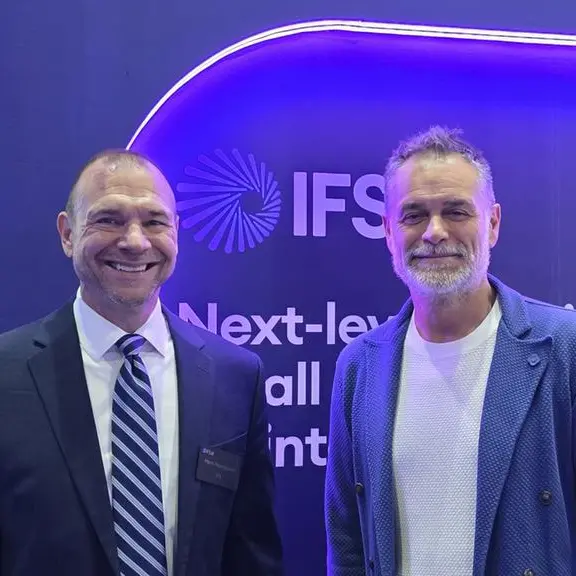PHOTO
- His Excellency Nasser bin Thani Al Hamli addresses HR heads of banks
- Initiative rolled out in 2017 to boost Emiratization in banks
- Financial penalty of AED20,000 per point below target to be implemented
Dubai-UAE: – Emirates Institute for Banking and Financial Studies (EIBFS), a regional leader in banking and finance education and training, today hosted a workshop to review progress achieved since the introduction of the target points system across UAE banks. The move aligns with the objective of the UAE Vision 2021 to increase the number of UAE nationals in the private sector.
His Excellency Nasser bin Thani Al Hamli, Minister of Human Resources and Emiratization, led the meeting that drew the participation of Shahab Essa Al Zaabi, Head of Licensing at the Central Bank of the UAE and Board Member of EIBFS. More than 120 HR heads of banks – critical stakeholders in the implementation process – were also present.
In his keynote address, His Excellency Nasser bin Thani Al Hamli said: “Banking and insurance are important strategic sectors that have the ability to provide suitable jobs for UAE nationals and increase their competitiveness, and thus actively contribute to achieving the Emiratization targets outlined in the UAE Vision 2021.”
He stressed the readiness of the Ministry of Human Resources and Emiratization to provide support to institutions and companies working in these sectors to enable them to achieve the required Emiratization rates according to the points system. He added that the Ministry is keen to develop partnerships with various economic sectors in the country and to promote integration of roles and joint responsibility for Emiratization.
Unlike the older quota system, the new scheme assigns point targets to institutions based on their revenues. In other words, banks with larger operating incomes and insurance companies with greater gross written premiums have higher Emiratization targets to work towards.
The entities earn input and output points to achieve their respective targets. The input points incentivize institutions for investing in the training of UAE nationals and developing their skillsets to help them move up the career ladder to senior management roles. Meanwhile, the output points reward banks and insurance companies for actual job creation and the quality of vacancies targeted towards Emiratis. For example, an entity scores five points if it creates a managerial position for a UAE national, whereas a non-managerial post fetches one point. If an entity fails to achieve the target, a financial penalty of AED20,000 will be applied for every point below the target.
His Excellency Humaid bin Mohammed Al Qatami, Chairman of the Human Resource Development Committee in the Banking Sector, who has played an important role in the launch of the points system in the banking and financial sector, and supported the Ministry of Human Resources and Emiratization in the government accelerator project that resulted in hiring 1,000 UAE nationals in 100 days in 2016-17, said: “We thank our partners in the banking sector for their support of our Emiratization policies. The leaders of banking and financial organizations, including insurance companies and money exchange offices, are aware of the national importance of the points system, which was introduced in accordance with the observations and suggestions of banks and other entities. The system will enable us to increase Emiratization rates and open opportunities for UAE nationals to take on leading roles in the sector. The critical banking and finance sector, bolstered by highly qualified national cadres, represents the cornerstone of sustainable development.”
Jamal Al Jassmi, General Manager of EIBFS, said: “The financial sector is one of the main pillars of our economy, and the contribution of UAE nationals who are currently part of the workforce, as well as the future generations, assumes critical significance. As the UAE and the region’s leading financial training institute, EIBFS views the mandate of Emiratization as its topmost priority.”
He added: “The Institute has a key role to play under the new points system that emphasizes the training and development of UAE nationals. We are working with HR and talent managers in banks to create comprehensive training programs that ensure continuing personal development of Emiratis at all levels of seniority – from entry to top management. We are confident our efforts will help increase the number of UAE nationals in senior roles in the competitive banking and finance sector.”
Shahab Essa Al Zaabi said: “As the country’s bank regulatory body, the Central Bank of the UAE is tasked with the important objective to drive increased participation of Emiratis in the banking sector. In 2017, the Central Bank launched the new target points system that incentivizes banking institutions to not just hire UAE nationals to fill up a quota but invest in the development of their capabilities that will help them climb the corporate ladder. This, in turn, encourages prospective candidates to view the sector as a viable career option. The inclusion of homegrown talent in senior management positions is critical for enabling Emiratis to make their mark in one of the most important sectors of our economy.”
He added: “Today’s meeting to review the implementation of the system with the HR heads of UAE’s banks provided an opportunity to see how we have fared so far, take stock of the achievements and the challenges, and, most importantly, determine what more needs to be done to help banks accelerate the process of hiring UAE nationals.”
-Ends-
About EIBFS
The Emirates Institute for Banking and Financial Studies (EIBFS) was founded in 1983. As a leading independent training center, it offers world-class education, training and allied services in the critical areas of banking and finance. Based in the UAE, EIBFS currently has three campuses for education and training services located in Sharjah, Abu Dhabi and Dubai. The Institute has made substantial contributions to the careers of thousands of students and working professionals in the financial services sector. EIBFS is also a strong supporter of Emiratization and has launched various initiatives that have greatly helped to promote the careers of Emiratis. All academic programs offered by EIBFS are accredited by the Commission for Academic Accreditation (CAA), Ministry of Higher Education and Scientific Research. Students who have successfully completed these programs have found productive employment at various levels in banks and financial institutions in the UAE and around the world.
For media enquiries, please contact:
Shady El Gohary
APCO Worldwide
Mobile: +971 55 126 6247
Email: selgohary@apcoworldwide.com
© Press Release 2018Disclaimer: The contents of this press release was provided from an external third party provider. This website is not responsible for, and does not control, such external content. This content is provided on an “as is” and “as available” basis and has not been edited in any way. Neither this website nor our affiliates guarantee the accuracy of or endorse the views or opinions expressed in this press release.
The press release is provided for informational purposes only. The content does not provide tax, legal or investment advice or opinion regarding the suitability, value or profitability of any particular security, portfolio or investment strategy. Neither this website nor our affiliates shall be liable for any errors or inaccuracies in the content, or for any actions taken by you in reliance thereon. You expressly agree that your use of the information within this article is at your sole risk.
To the fullest extent permitted by applicable law, this website, its parent company, its subsidiaries, its affiliates and the respective shareholders, directors, officers, employees, agents, advertisers, content providers and licensors will not be liable (jointly or severally) to you for any direct, indirect, consequential, special, incidental, punitive or exemplary damages, including without limitation, lost profits, lost savings and lost revenues, whether in negligence, tort, contract or any other theory of liability, even if the parties have been advised of the possibility or could have foreseen any such damages.




















